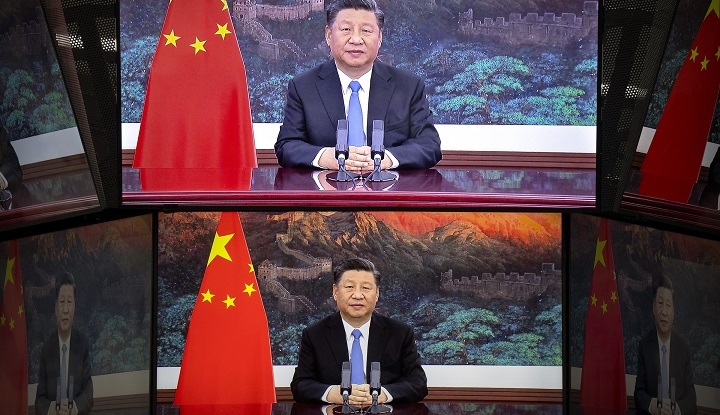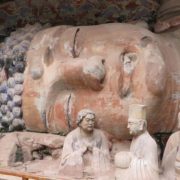
China is caught in a series of paradoxes without any clear solution that could make China lose either way. The following is a very brief recap of the situation.
Without going into many important details, this may at least be useful as notes to address thinking on the situation.
The first paradox starts from a question: Does China want a different world? This world, based on American-led globalization, made China rich. If China tries to change the present order, this world, things could turn ugly for China. That is, China could become the victim of the new order it set up because at the very least it is uncharted territory and many things are unknown and most likely hostile.
Some people in Beijing may think that China doesn’t want to change the world; it’s the US that wants to change the “rules of engagement” with China. Still, objectively because of China’s growing economic size, things are evolving and are not what they used to be 20 or 30 years ago. Then either China changes the world or China changes by adapting to the world – and this is the second paradox.
Present China is actually the incarnation of the rule of the Communist Party of China (CPC). It is the People’s Republic of China (PRC), just as Qing and Ming China were the incarnations of the country as ruled by those dynasties. If the PRC changes to adapt to the world, equally things could turn ugly for it because the PRC structure is rigid and not easy to adapt politically. Things are new and domestically there may be huge hostility to change.
Then in sum, if the PRC changes the world, it may be bad for the PRC; if the PRC tries to change itself, again it may be bad for the PRC. It is a lose-lose proposition. So, there will be huge opposition to any move President Xi Jinping makes.
Opposite the Past
It is just the opposite of the situation 40 years ago. Then Deng Xiaoping’s China had nothing to lose but its poverty. China was poor and miserable yet with no political challenge, as America then had no interest in toppling the ruling CPC. If the reforms and opening failed, China would be as poor as before. If they succeeded, they would transform the country.
Plus, then all officials had been recently persecuted one way or another by the Cultural Revolution, had suffered in the countryside and in labor camps, so they had no privilege to defend. Now officials have privileges and sometime they are also rich, they have everything to lose in a change. Therefore, Deng had really no opposition.
Conversely, whatever Xi chooses will be wrong for someone in China or in the world. What will he choose?
We can see that in recent days Xi has been trying to get out of this conundrum by wrangling his way in the difficult international environment and trying to avoid a stark choice some countries pose to him.
These days China is negotiating a comprehensive trade and investment agreement with the EU. The two sides have voiced optimism about the outcome, although nothing has been inked yet. If China were to sign an agreement, this could be an important bargaining chip or stepping stone while facing similar demands from the US.
Early in December, China signed the Regional Comprehensive Economic Partnership (RCEP) agreement as almost a signal to the US that Beijing is not impossible to talk to.
But as we argued elsewhere a decade ago a comprehensive trade agreement would suffice to stave off much pressure. Now it is far from enough, although it would certainly be useful if the one with the EU is actually signed. If it turns out to be naught, it would be considered one more sign that China is irredeemable.
That is, if the agreement is reached, it will provide just a little breathing space; if it isn’t, it is another nail in the Chinese coffin.
Xi would need some magic to help his country and the world out of the present lose-lose pit.
Deng-Xi similarities?
Here also a similarity between Xi and Deng.
Deng inherited China’s international position from Mao. It was Mao who fought the Soviets in the 1960s and sided with the US in the 1970s. Deng then took part in the process, as senior leader, but was not the main mover.
Xi also inherited China’s international position from his predecessors. It was during Hu Jintao’s rule, under the influence of Jiang Zemin, that China progressively looked down on America after the 2008 financial crisis. Xi, lined up as the frontrunner for succession, was part of the decision-making process but was not the main mover.
Deng, when he was in charge, warmed to the USSR again. In fact, he brought Gorbachev to Beijing in 1989.
We don’t know if Xi will follow Deng and eventually change China’s international position, but certainly the global situation for Beijing is far more complicated than 40 years ago.





